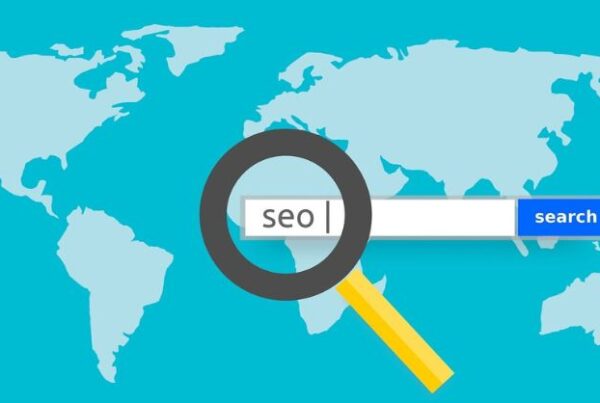
Whether it’s a new business or not, consider how to rank higher on Google to get more traffic and customers, which will ultimately result in new leads and additional revenue if done correctly.
Read on to learn more.
Place Keywords Strategically
Search engine optimization (SEO) is critical for all businesses, including both online and more traditional brick and mortar businesses. One of the most critical components of an SEO strategy involves keywords, which will help determine your site’s rankings. While writing a page or post, consider the keyword for which you want it to rank.
For example, if I’m writing a blog post for a new online only pizzeria, I’d want to choose a keyword or phrase that includes – online pizza restaurant.
Add that keyword to the page or post title as well as the introduction, conclusion, and one header. Placing the keyword throughout the article in this fashion will communicate to Google that’s the subject of the content.
Be sure to avoid stuffing keywords (overuse of a keyword) into the text just to try to rank for the keyword. Such strategies worked until Google realized this was happening and put an end to it….Who is smarter than Google?
Stuffing keywords now comes across as a spam-based approach, so it won’t help the page reach the top of search rankings. Conversely, Google will penalize the post, and it will never rank higher on Google—and you will be on Google’s radar! As you develop your digital marketing strategy, consider working with an agency to plan out keywords to rank higher over time.
Consider Search Intent
Intent is another essential factor of an online marketing strategy because it tells Google who to put your page or post in front of. If someone is searching for a digital marketing agency to help them rank higher on Google, you will want your content to answer questions for the person searching. With your content marketing strategy you want to develop trust with both Google and your potential customers.
Determining a customer’s search intent can also help when using PPC ads, which can provide quicker results than organic SEO. Think like the person searching to make sure the content fits their needs.
Use LSI Keywords
LSI (latent semantic indexing) keywords are vital to a keyword strategy. After deciding on the main keyword, find LSI keywords that relate to the main topic.
Utilizing these extra words and phrases will tell Google about the topic to reinforce it. However, good LSI keywords can also help the content rank higher in searches related to the main keyword.
Articles on coffee could include LSI keywords such as:
- Beans
- Grind
- Ice
- Cold water
- Temperature
Place the LSI keywords throughout an article to make them natural, like the main keyword. Cramming LSI keywords into the article can also come off as spammy.
Add Internal Links
Internal links are those that lead to other pages or posts on the same domain. Linking to pages within a website tells Google more information about the content.
First, it shows that the posts relate to each other. Website visitors can click on those links to learn more about a given topic, so they will obtain the answers they need.
Consequently, internal links can help keep people from leaving the site after viewing one page. Users that leave after a page, especially quickly, can increase the bounce rate, which tells Google the content isn’t the best.
Focus on Quality Content
Content creation is just as important as any other step for how to rank higher on Google. Even if the content has the right keywords and includes internal links, it needs to be interesting and provide value.
Blog posts or articles that provide value will keep people on a website longer, further reducing the bounce rate. Spend time writing or editing the content to make it easy to read.
Incorporate plenty of white space by using headings and short paragraphs. White space is particularly important for people that use their mobile devices to browse the web.
Long walls of text can be overwhelming, making people click back to Google. More bounces will send that same negative message to the search engine, potentially hurting the rankings.
Fix Technical SEO Issues
Technical SEO refers to elements that improve search rankings that viewers don’t see. It’s the back-end work that helps you get found online, which generally requires an SEO professional or agency. Sites that load more quickly, for example, can help a website rank higher.
Furthermore, mobile responsiveness is also vital with more people using smartphones or tablets. Indexing should also be easy for Google or other search engines so that it can show the website in search in the first place.
Checking for these problems allows website owners to resolve the issue sooner rather than later. Problems aren’t terribly common, but they do happen, so a regular checkup is an easy way to find issues.
Obtain Backlinks
Backlinks are links that appear on other websites that link back to yours. Consider backlinks to be online handshakes between your website and another—backlinks show trust. Domains with more traffic in the same industry can provide links to a smaller website.
Assuming the domain is reputable, Google will recognize the backlink to the smaller site. Noticing the backlink can tell Google the smaller domain is also reputable, so it should show up in search.
Links from just any website won’t always help because they may not have that much authority. Receiving a link from a website in an irrelevant industry may also not help another site’s overall SEO.
Working with an agency to build backlinks can ensure the links come from the right sources. Agencies can create a backlink strategy and tailor it to the specific website to obtain the best results.
Review Analytics
Numbers don’t lie, so make sure to review analytics before and during a shift in SEO strategy. Take time to review analytics at least every month to learn what worked or what needs improvement.
Develop a strategy based on the analytics to boost the results the following month. Find a strategy that works, but be sure to give it time to work. SEO will help you rank higher on Google–but it takes time.
Algorithms change, so what works now may not work in a few months. Be sure to read any updates on SEO and other marketing trends to help with this.
Understanding How to Rank Higher on Google
Knowing how to rank higher on Google is crucial for solo entrepreneurs, small teams, and everyone in between. Implementing strategies, like technical SEO, is great.
However, multiple steps go into getting to that top result. Fortunately, a marketing agency can help when it comes to getting content on the first page of Google.
Learn how SEO can help grow website traffic, then, hire an agency to provide the best SEO service.



